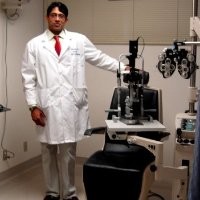A new breakthrough in the field of medical science has been made, where scientists have identified a blood protein that may serve as a predictor of prolonged concussion symptoms in children. The research, conducted by the Murdoch Children’s Research Institute (MCRI), published in the Journal of Neurotrauma, highlights the potentiality of this protein as a biomarker for prolonged recovery from concussion in children.
Children aged between five and eighteen years, who had experienced a concussion and arrived at The Royal Children’s Hospital’s emergency department within 48 hours of the injury, were the subject of this study. A significant finding was that the levels of the protein known as alpha-1-antichymotrypsin (alpha-1-ACT) were notably lower in children who showed signs of delayed recovery.
Ella Swaney, a researcher at MCRI, emphasized the increasing need for a tool to help identify children likely to experience delayed recovery from concussion due to the growing public health concern about concussion. Each year, of the four million children who suffer a concussion, 25-30% experience long-term symptoms and approximately half never seek medical care. Symptoms such as headaches, memory lapses, and light sensitivity could persist for months, while certain mental health conditions may continue for years.
According to Swaney, “A delayed recovery from concussion can lead to emotional, behavioural, physical and cognitive symptoms, all of which can negatively impact a child’s well-being, delay their return to school and sports activities.” Swaney further stressed the importance of early detection to facilitate effective treatment and targeted follow-up.
The study, which involved 80 children, was the first human trial to suggest that alpha-1-ACT could aid in the early detection of those likely to experience prolonged recovery from a concussion. Professor Vicki Anderson from MCRI believes that if these findings are substantiated in larger studies, it could greatly contribute to the acute clinical management by providing health care professionals with an acute marker. This would guide them towards providing timely and targeted treatments to children most likely to experience long-term problems.
A case example is of 16-year-old Mackenzie, who suffered a concussion during a netball match. The impact of the injury was so severe that it left her unconscious for a minute, with a nosebleed and a swollen left eye. She was later diagnosed with a concussion at the hospital. In the aftermath of the incident, Mackenzie experienced symptoms like dizziness, confusion, nausea, sensitivity to light, memory loss, headaches, muscle soreness, and poor mental health.
To aid her recovery, Mackenzie participated in MCRI’s Concussion Essentials Plus program, which offered a mix of weekly physiotherapy and psychology treatments over several months. The program also included education about returning to exercise, school, and sports. This intervention played a significant role in her recovery, helping her return to normalcy and to the sport she loves.
Mackenzie’s mother, Karen Payne, believes the latest MCRI research could provide much-needed relief to families. She says, “If clinicians can quickly determine which children will have prolonged concussion symptoms, they can provide targeted and early intervention.” She further adds that recovery from concussion can be a lengthy process, hence any tool that can help expedite the process would make a significant difference.
In 2023, MCRI researchers, along with other international researchers, conducted extensive research into all aspects of concussion management. The findings aimed to revolutionize how concussions are managed across different sports and medical clinics, introducing novel exercise and rehabilitation methods, and updating return-to-school and return-to-sport protocols.
The HeadCheck App, another innovative concussion management tool developed by child concussion experts at MCRI in collaboration with The Royal Children’s Hospital and the Australian Football League (AFL), assists in early recognition of concussion and manages recovery. The study also received contributions from researchers from the University of Melbourne, Macquarie University’s Australian Proteome Analysis Facility, Austin and Cabrini Hospitals, Johns Hopkins All Children’s Institute for Clinical and Translational Research, and Hopkins University.


Comments are closed for this post.